#Suspicion 1941
Text


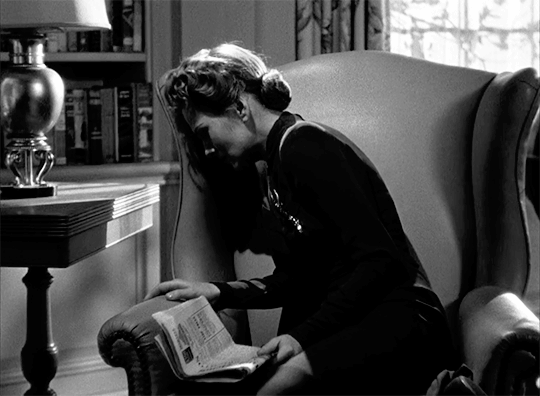
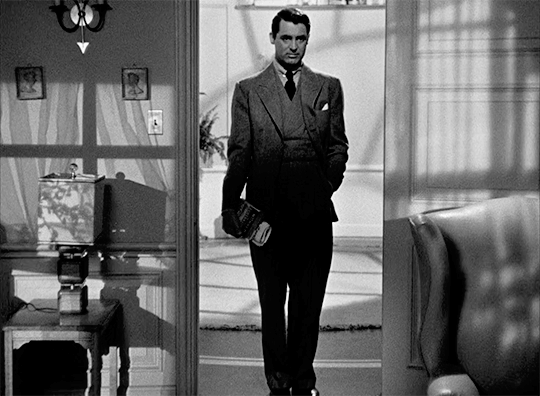
SUSPICION (1941) dir. Alfred Hitchcock
#Suspicion#Suspicion 1941#Joan Fontaine#Cary Grant#Hitchcock#Alfred Hitchcock#1940s#Old Hollywood#Classic Cinema#suspicionedit#classicfilmblr#classicfilmedit#oldhollywoodedit#filmgifs#moviegifs#movieedit#filmedit#ritahayworrth#classicfilmsource#filmblr#joanfontaineedit#carygrantedit#pureanonedits#This movie took me nearly a week to watch...made my skin crawl in a good way!!!#hitchcockedit
729 notes
·
View notes
Text
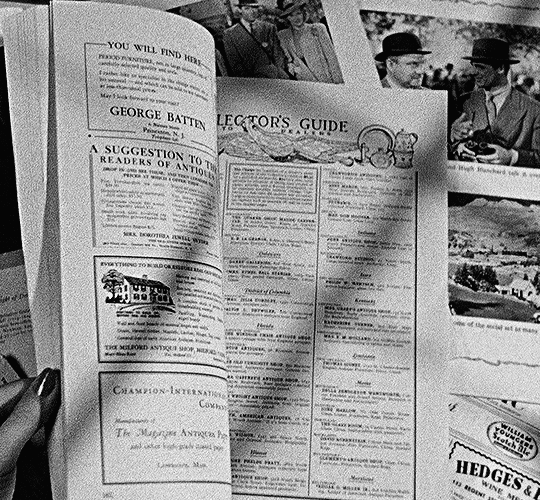


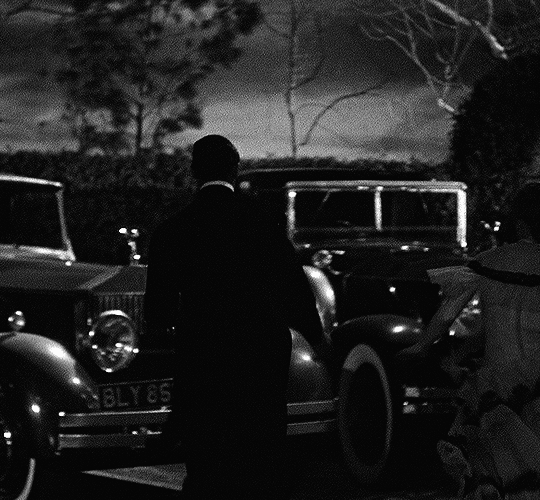

SUSPICION (1941) dir. Alfred Hitchcock

#filmedit#oldhollywoodedit#noiredit#suspicion#suspicion 1941#joan fontaine#cary grant#alfred hitchcock#noir#noirvember#old hollywood#moviesedit#mygifs#usermichi#moviegifs#filmgifs#cinemapix#useroptional
430 notes
·
View notes
Text
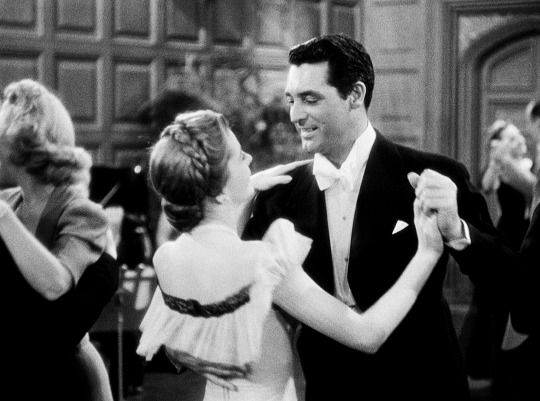
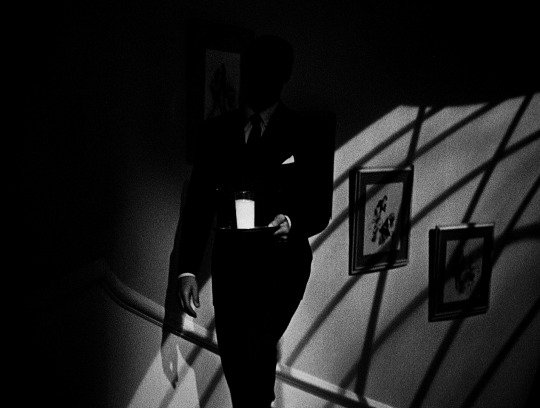



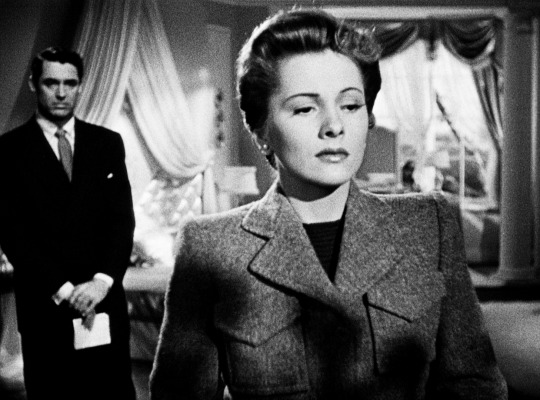
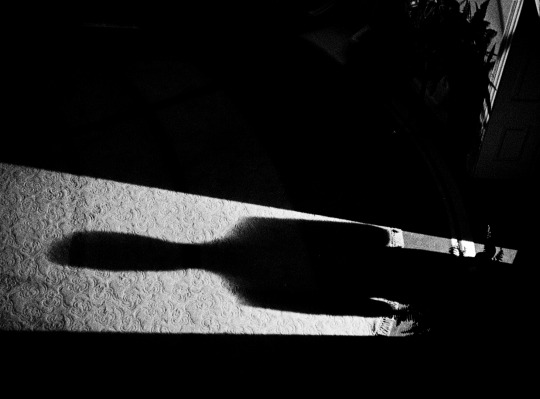

If you're going to kill someone, do it simply.
Suspicion (1941) dir. Alfred Hitchcock
#suspicion#suspicion 1941#alfred hitchcock#oldhollywoodedit#filmedit#joan fontaine#cary grant#mine: screencaps#mine**
77 notes
·
View notes
Text

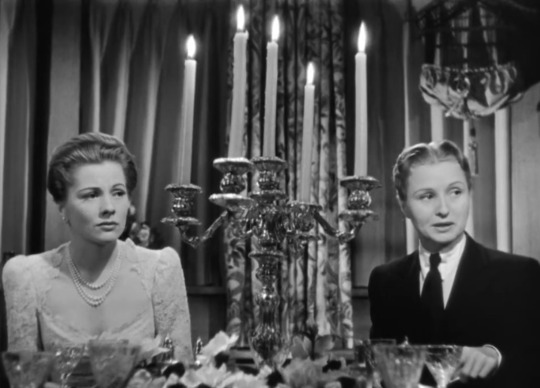
rather cool suited lady in suspicion (1941)
22 notes
·
View notes
Photo

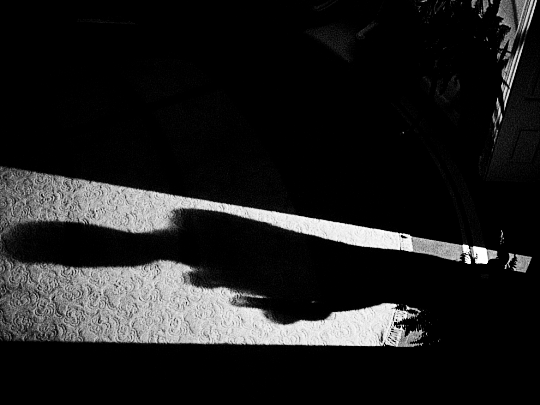
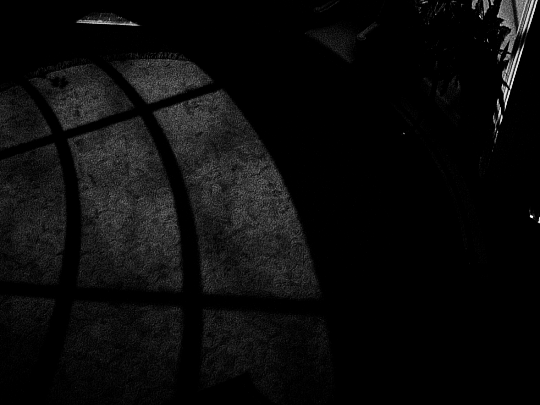

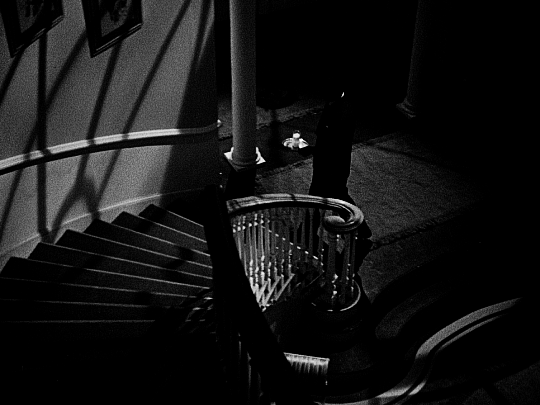

Cary Grant in Suspicion (1941)
#suspicion#suspicion 1941#alfred hitchcock#oldhollywoodedit#classicfilmedit#filmedit#cary grant#cinemaspast#classicfilmsource#fyeahmovies#my thing#most sinister looking glass of milk ever
70 notes
·
View notes
Text





Cary Grant and Joan Fontaine in Suspicion 1941
#suspicion 1941#cary grant#joan fontaine#vintage glamour#vintage movies#vintage hollywood#vintage aesthetic#vintage#classic hollywood#classicfilmsource#classic cinema#classic movies#classic film#classic#golden age#golden era#old hollywod glamour#oldhollywoodedit#old movies#old hollywood#old#hollywood#glamour#old glamour#glamoroussource#1940s#1940s movies#1940s vintage#40s film#40s cinema
36 notes
·
View notes
Text
The ending of Hitchcock’s Suspicion: Copping out or hoodwinking the censors?

Anyone’s initial viewing of Suspicion seems doomed to be frustrating, not because the movie on the whole is bad, but because of a botched landing.
Suspicion follows Lina, a meek English heiress. Terrified of spinsterhood, Lina falls into the arms of Johnnie, a charming rogue with a few bad habits, all involving money. Not inclined to work or to save what he has, Johnnie lives off loans from relatives and friends, suggesting that his quick marriage to Lina is financially motivated.

For a while, the two live happily, until Lina starts becoming more aware of Johnnie’s tendency to lie to her. Johnnie also proves a thief—and perhaps a murderer, though Lina cannot be sure. Eventually, it seems Lina herself might be Johnnie’s next victim.
Sounds great, right? And it is for 99% of the runtime, a true classic psychological domestic thriller.
But then there’s the final 1%...
The ending of the original novel ended with Lina willingly allowing herself to be killed by Johnnie out of amor fou. Compromised by the Production Code and the studio’s desire to keep Grant’s onscreen persona unsullied by true menace, Hitchcock’s film ends on a ludicrous note: it turns out, it was all in Lina’s head and Johnnie was (apparently) experiencing suicidal ideation due to thinking he wasn’t good enough for Lina! How dare she not think of HIS feelings after he’s lied to her repeatedly and betrayed her trust time and again!
I remember being so angry by this ending that I immediately disregarded any of the film’s positive qualities. Joan Fontaine’s psychologically fraught performance (much better than in her previous Hitchcock collaboration Rebecca IMO), Cary Grant’s low-simmering menace, the tense domestic atmosphere, the slow-burn piling up of evidence against Johnnie—all of that was quickly forgotten in the nauseous afterglow of that BS finale.
I recently decided to go through Hitchcock’s entire theatrical filmography and make a ranked list, just for fun. However, the prospect of having to rewatch Suspicion filled me with annoyance and dread. I forgot most of the movie and only recalled how angry the ending made me.
Surprisingly, my opinion of the film went up, but I think that favorable reassessment was aided by my watching this video essay detailing the film’s proposed multiple endings and a more ambiguous interpretation of the one that remains in the finished film:
youtube
Is it possible that the ending does not clear Johnnie at all? The way Grant shifts his eyes when Fontaine starts to breathlessly (desperately?) explain away his suspicious behavior suggests something going on beneath the reassuring dialogue and the joyous final shot of the spouses reunited. If this idea has merit, then Lina is not getting her happy ending. She’s only postponed her own execution.
Of course, I still think even with this interpretation, the ending is still unsatisfying and abrupt. Even the ambiguity that could be there is hair-thin.
Whatever the case, Suspicion is still a pretty good movie—the ending is flawed from any angle, but the movie itself deserves more than the flip dismissal I originally gave it.
23 notes
·
View notes
Text

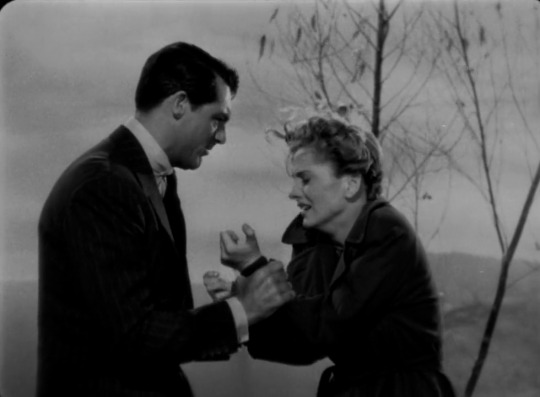

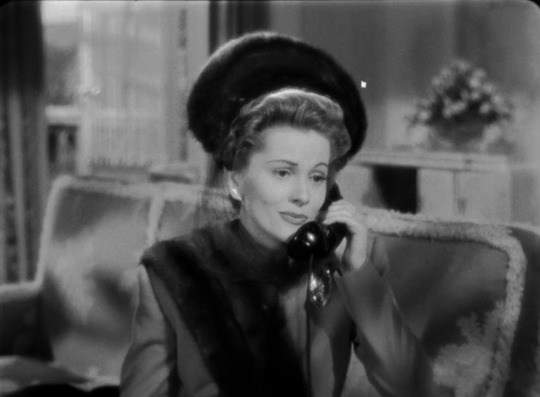



#suspicion 1941#suspicion#cary grant#joan fontaine#old hollywood#golden age#film noir#classic movies#my ss
22 notes
·
View notes
Text

#suspicion 1941#movie poster#classic film#alfred hitchcock#cary grant#joan fontaine#vintage#old hollywood#1940s movies#1941#film noir#ky1echristian
4 notes
·
View notes
Photo
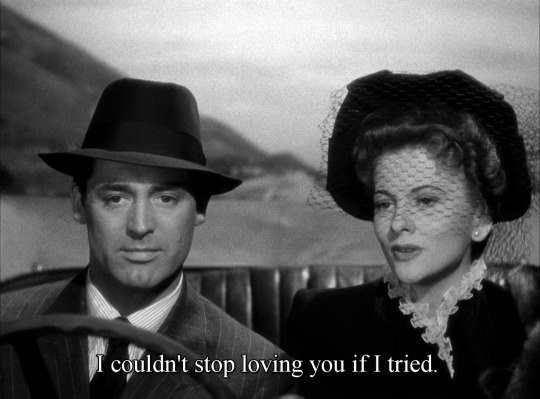

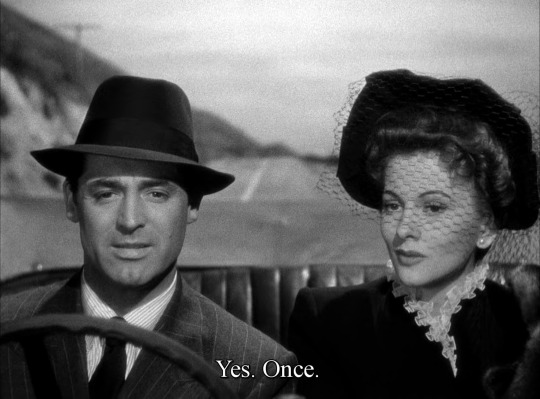
Suspicion (Alfred Hitchcock, 1941)
759 notes
·
View notes
Text
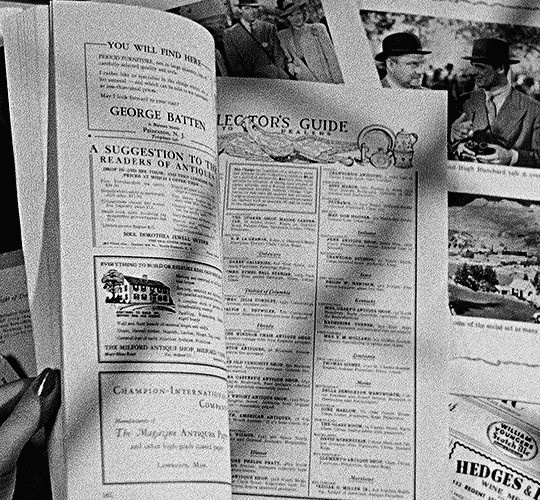
SUSPICION (1941) dir. Alfred Hitchcock
33 notes
·
View notes
Photo
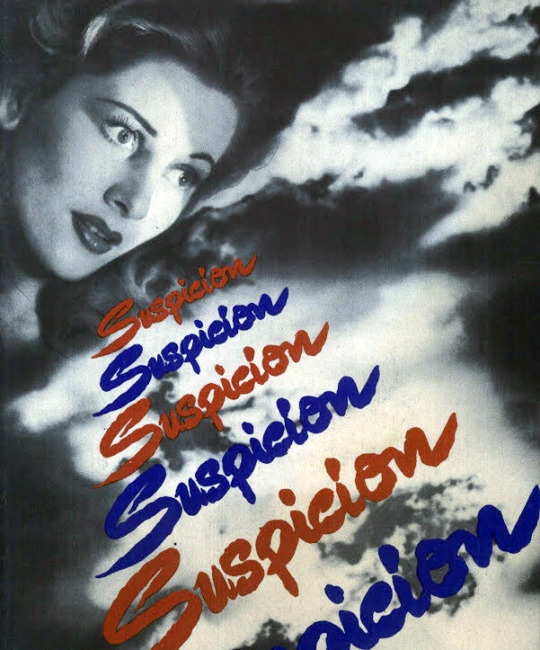
(via Greenbriar Picture Shows: Anything But a Happy Ending)
24 notes
·
View notes
Text

27 notes
·
View notes
Text
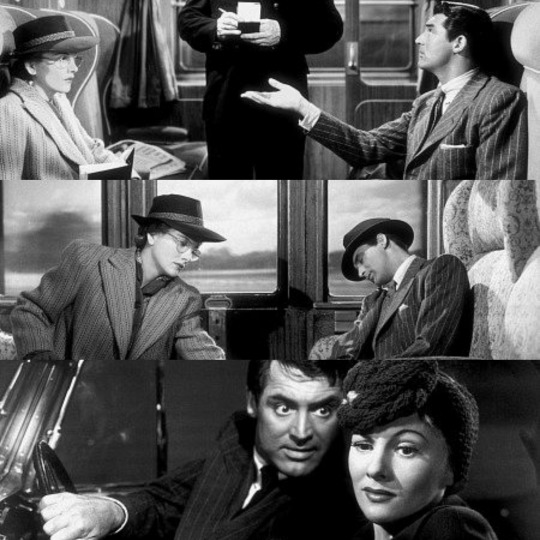
Suspicion (1941, Alfred Hitchcock)
26/01/2024
Suspicion is a 1941 film directed by Alfred Hitchcock.
1938; Seductive playboy Johnnie Aysgarth meets young Lina McLaidlaw on a train in England, coning her to go out with him.
The subject is taken from the novel Before the Fact by Anthony Berkeley Cox, written and published in 1932 under the pseudonym of Francis Iles. RKO had been trying to bring the book to the screen since 1935 and Emily Williams was approached for the screenplay.
Hitchcock hired Samson Raphaelson, a successful collaborator on many of Ernst Lubitsch's film, to write the screenplay.
The part of the male protagonist was entrusted to Cary Grant, in the first of four Hitchcock films he played. The part of the female protagonist was entrusted to Joan Fontaine, in her second film with Hitchcock after Rebecca.
The film was shot entirely in the studio and cost much less than the previous two American films, Rebecca and Foreign Correspondent.
Before the Fact is the story of Lina, who grows up in the countryside in the first decades of the 20th century. Lina and Johnnie spend their honeymoon in Paris, staying in the best hotels and subsequently settle in London, in a large apartment. They leave their expensive London flat and move to Dorset, where they don't know anyone.
In 1943,a group of Italian actors were in Madrid to participate in a Spanish-Italian co-production film, among them Emilio Cigoli, Paola Barbara, Nerio Bernardi, Franco Coop, Anita Farra, Felice Romano; the events of 25 July and 8 September of the same year prevented these actors from returning to Italy.
A representative of 20th Century Fox in Madrid asked the Italian actors, while waiting to return home, to take care of the dubbing of some films of the American company, so that upon the arrival of the Americans in Italy, with the reopening of the cinema market, could be ready for theaters.
#Suspicion#1941#alfred hitchcock#1938#Before the Fact#Anthony Berkeley Cox#Pseudonym#1935#ernst lubitsch#cary grant#joan fontaine#Rebecca#Foreign Correspondent#Noel Simsolo#shadow of a doubt#Éric Rohmer#claude chabrol#20th century#paris#london#dorset#1943#Madrid#Emilio Cigoli#Paola Barbara#Nerio Bernardi#Franco Coop#Anita Farra#Felice Romano#20th centery fox
2 notes
·
View notes
Photo

Suspicion, Alfred Hitchcock
#suspicion#alfred hitchcock#1941#1940s#40s#joan fontaine#beauty#b&w#black and white#movie#film#cinema#cinematography#screencaps#stills
17 notes
·
View notes
Text

Suspicion (1941), dir. Alfred Hitchcock.
Joan Fontaine's Academy Award was well deserved—that was perhaps the most agitated I've felt from a Hitchcock film.*
[*I enjoy Hitchcock's films, but I felt that some of the popular ones (Vertigo, To Catch a Thief, and Rear Window, especially), while entertaining, don't measure up to his reputation for suspense]
#suspicion#suspicion (1941)#movie poster#vintage movie posters#1941#1940s#hitchcock#cary grant#joan fontaine#movie night
1 note
·
View note